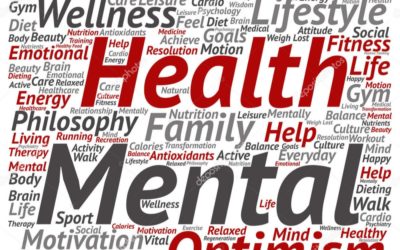Nutrition
Nutrition
Every one of us is well aware of the fact that nutrients play a key role in the overall development of a body. Generally, we think that nutrition is limited up to the physical growth and well-being of a body. But, nutrition plays a major role in brain development too which we often refer to or call it brain health.
Every child has a right to optimal cognitive, social, and emotional behavioural development. The cognitive, social and emotional parts of the brain continue to develop throughout the lifespan. However, the brain’s growth and development trajectory are heterogeneous across time. A great deal of the brain’s ultimate structure and capacity is shaped early in life before the age of 3 years. The identification of this particularly sensitive time period has pointed out the approach that public policies are taking related to promoting healthy brain development.
Nutrition is one of the single greatest environmental factors on babies in the womb and it stays essential throughout infancy and early stages or years of child development. A proper balance of nutrients in the early part of life plays is critical for brain development as it promotes cognitive development later that is into adult years.
Shortages of nutrients such as iron and iodine can impair cognitive and motor development. Similarly, there is growing evidence that DHA, an essential fatty acid, is a key component of the intensive production of synapses that make the early years of life a critical period of learning and development. Many other nutrients like choline, folic acid and zinc to name just a few have been linked specifically to early brain development and functioning.
The Role of Nutrition in Brain Health:
We often meet government advertisements on television, radio or any other platform regarding nutrition and brain development. The advertisements constantly bombard regarding the significance of nutrition in child development, especially the brain as the impact of nutrition remains across the lifespan. Nutrition holds a lion’s share in brain development. Early nutrition shortages can lead to a reduction in brain cell production. Nutrient shortages later can impact cell size and complexity. Nutrient deficits can also lead to an impact on the complex chemical process of the brain and less efficient communication between brain cells.
Nutrients needed for Healthy Brain Development:
Nutrition has a great and important influence on brain development. Here are certain nutrients that are necessary for healthy brain development:
- Protein: Protein’s main source is meat, poultry, seafood, beans and peas, eggs, soy products, nuts and seeds, as well as dairy.
- Zinc: Oysters are the main source of zinc but it is also found in meats, fish, dairy products and nuts.
- Iron: Iron is found in meats, beans and lentils, fortified cereals and breads, dark leafy vegetables. Baked potatoes are among the best sources of iron.
- Choline: Meat, dairy, and eggs have lots of choline, but so do many vegetables and other foods.
- Folate or Folic acid: Especially important for pregnant mothers, can be found in liver, spinach, fortified cereals and bread, as well as other foods.
- Iodine: Extremely important nutrition for overall brain development can be found in iodized salt, seafood, dairy products, and enriched grains.
- Vitamin A: Along with the liver, carrots, sweet potato, and spinach are good sources of this vitamin.
- Vitamin D: As we all know the best source of Vitamin D is Sun. The flesh of fatty fishes such as salmon has it, as does fish liver oil, and products fortified with it, such as fortified milk.
- Vitamin B6: The best sources of vitamin B6 are liver and other organ meats, fish, potatoes and other starchy vegetables and fruits.
- Vitamin B12: Vitamin B12 is naturally found in animal products, such as meat, fish, eggs, and dairy.
- Long-chain polyunsaturated fatty acids: An example is omega-3 fatty acids. These are most easily found in fatty fish and fish oils but can be found in some other oils, and many foods are also fortified with them.
The Psychology of Healthy Eating:
What is Healthy Eating?
Healthy eating means the consumption of various foods that gives nutrients, needed to maintain health, feel good and have energy. These nutrients include protein, carbohydrates, fat, water, vitamins, and minerals. Nutrition is important for everyone. Healthy eating helps us to maintain a healthy weight and reduces our risk of type 2 diabetes, high blood pressure, high cholesterol and the risk of developing cardiovascular disease and some cancers.
The Psychology behind Healthy Eating:
You might be thinking, is there psychology behind healthy eating? Well, the modern-day era answers it as Yes! Eating or consuming food nowadays has not limited only up to the satisfaction of appetite. It has gone well above that. Different people possess different psychology of healthy eating.
Normally, people with the psychology of healthy eating habits use food as a source of energy and fuel as well as a vehicle for social connectivity and sometimes as a source of pleasure. Such people may be motivated with health, beauty, desire for weight loss or weight gain or even maintaining a similar condition. A ‘nutritional psychologist near me’ or ‘nutritional psychiatrist near me’ explains better than anyone else regarding all the details of psychologically healthy eating habits. Psychiatric nutrition therapy is also used by a nutritional psychologist that focuses on the use of food and supplements to provide these essential nutrients as part of an integrated or alternative treatment for mental health disorders.
People with psychologically healthy eating habits are mindful of the singular purpose of eating – health. They easily recognise emotional triggers, know how to stop eating when they feel full and are overall more internally driven than externally driven. They are well aware of food’s taste, texture, feel and temperature, as well as the importance of proper chewing.
Tips for becoming a psychologically healthy eater:
- Make a decision of quantity (how much you are going to eat) of eating food before having a go at it
- When eating a larger meal, use a smaller plate so that psychologically you may have a feeling of food consumption in a larger amount
- Always eat in the kitchen or dining room
- Be the last person to begin eating at group meals
- Eat slowly and put your utensils down between bites
- Make snacking and eating seconds a major inconvenience so as to avoid the excess consumption
- Always choose quality over quantity.
Where to find the Best Nutritional Psychologist?
You can find ‘nutritional psychologist near me’ or ‘nutritional psychiatrist near me’ in our hassle-free Search Licensed Psychologist directory. Enjoy the benefits of all licensed and trusted psychologists of all specifications or as per your needs.
Related Blogs
How food affects your mood? : Diet and Mental Health
Do you find yourself feeling down, stressed and moody after a big meal? It may not be “all in your head.” Research shows there’s a link between food and mood. That’s because your gut plays an active role in producing chemical messengers that influence your emotions....
Nutritional psychiatry: What does it mean for you?
Think about it. Your brain is always "ON" means it has many things to think and worry about. It takes care of your thoughts and movements, your breathing and heartbeat, your senses — it works hard and continuous 24/7, even while you’re asleep. This means your...
Foods that Improve Memory
Do foods really improve memory? Yes, many foods can keep your brain healthy. Research is finding that Mediterranean Diet helps keep aging brains sharp, and a growing body of evidence links foods such as those in the Mediterranean diet with better cognitive function,...
What are you waiting for?
You can’t change the past, but by working together with a counselor, you will understand and resolve challenges in your life. Contact a counselor for relieving emotional distress and other cognitive health issues for a better tomorrow.










